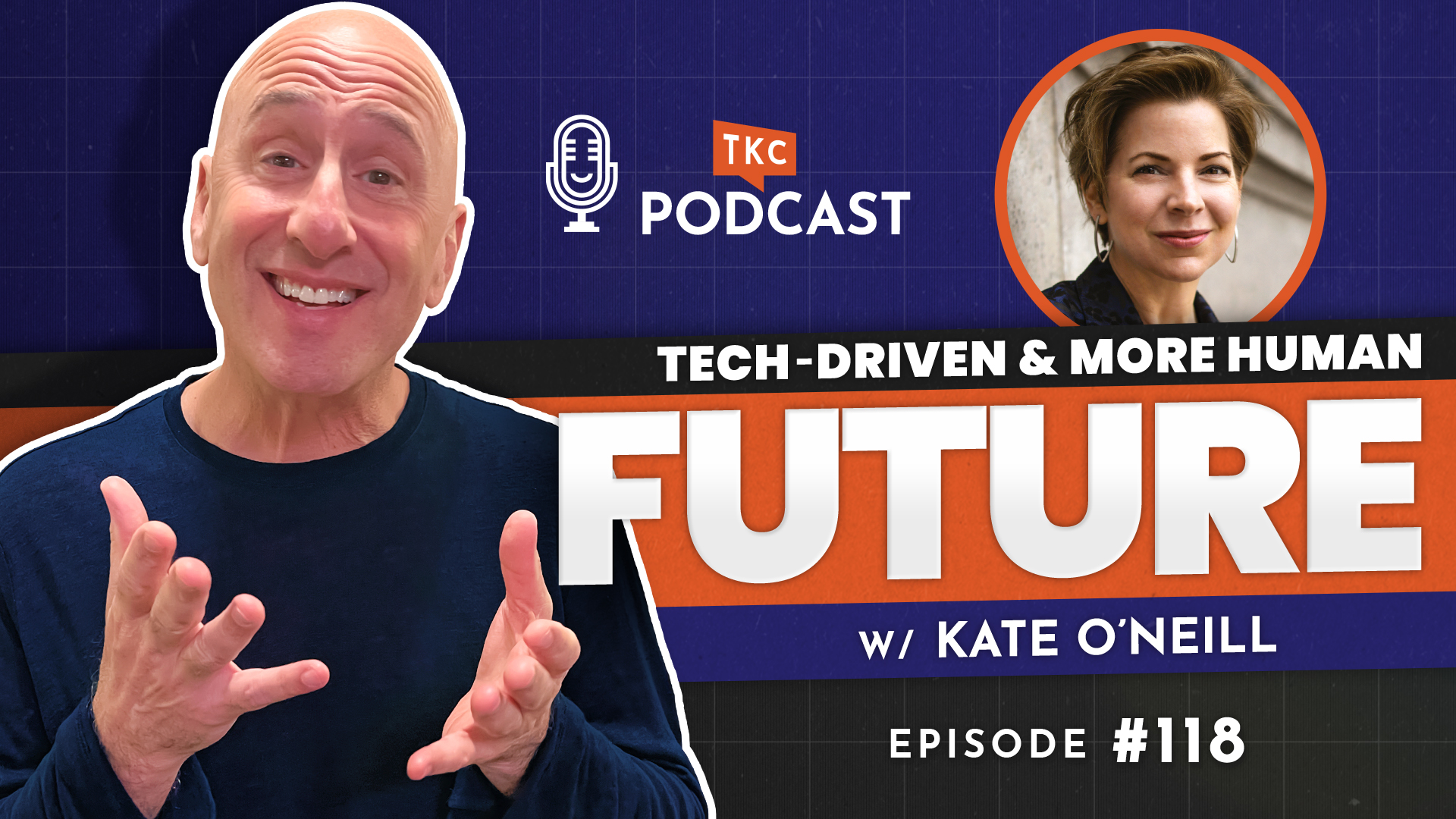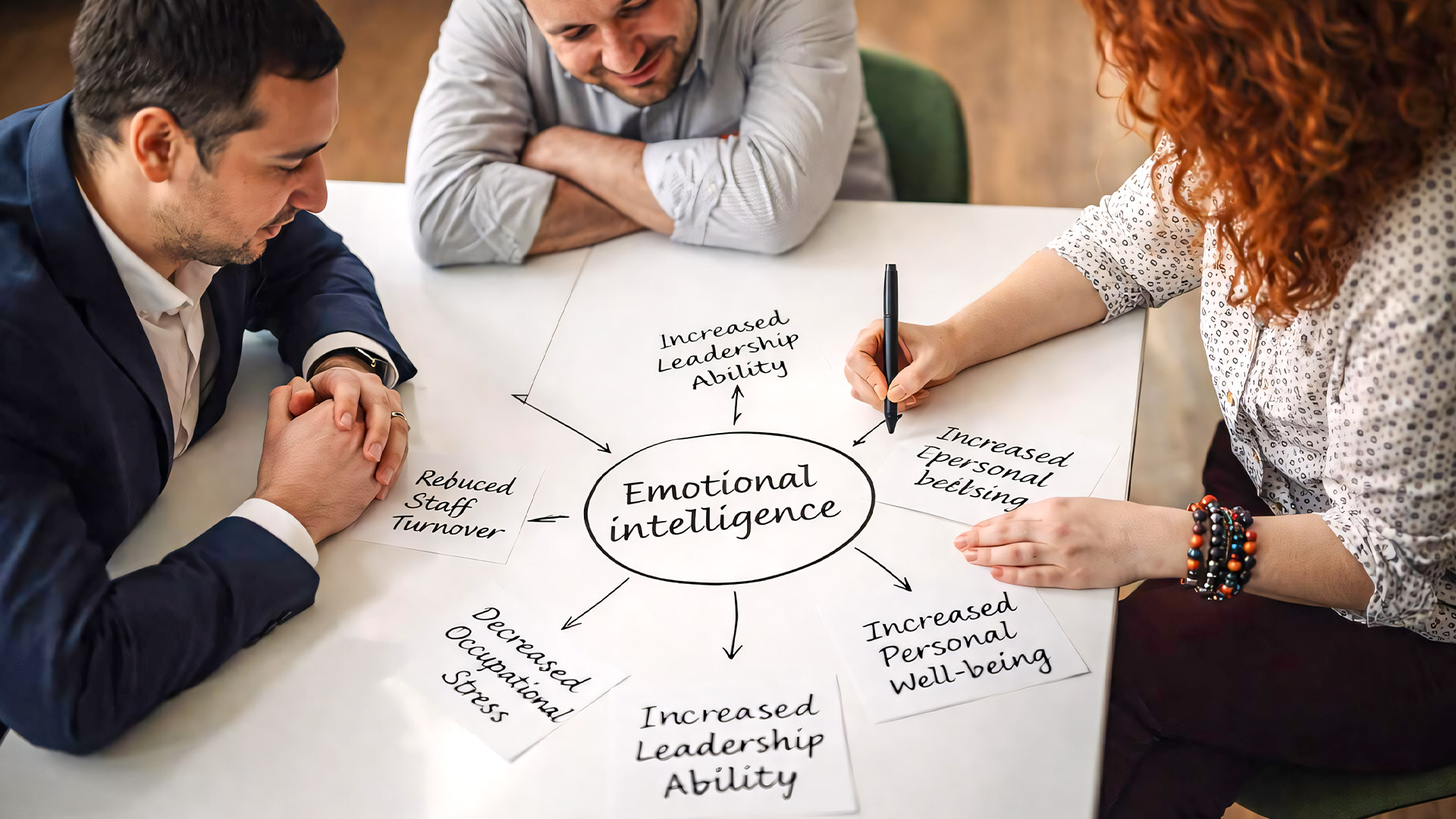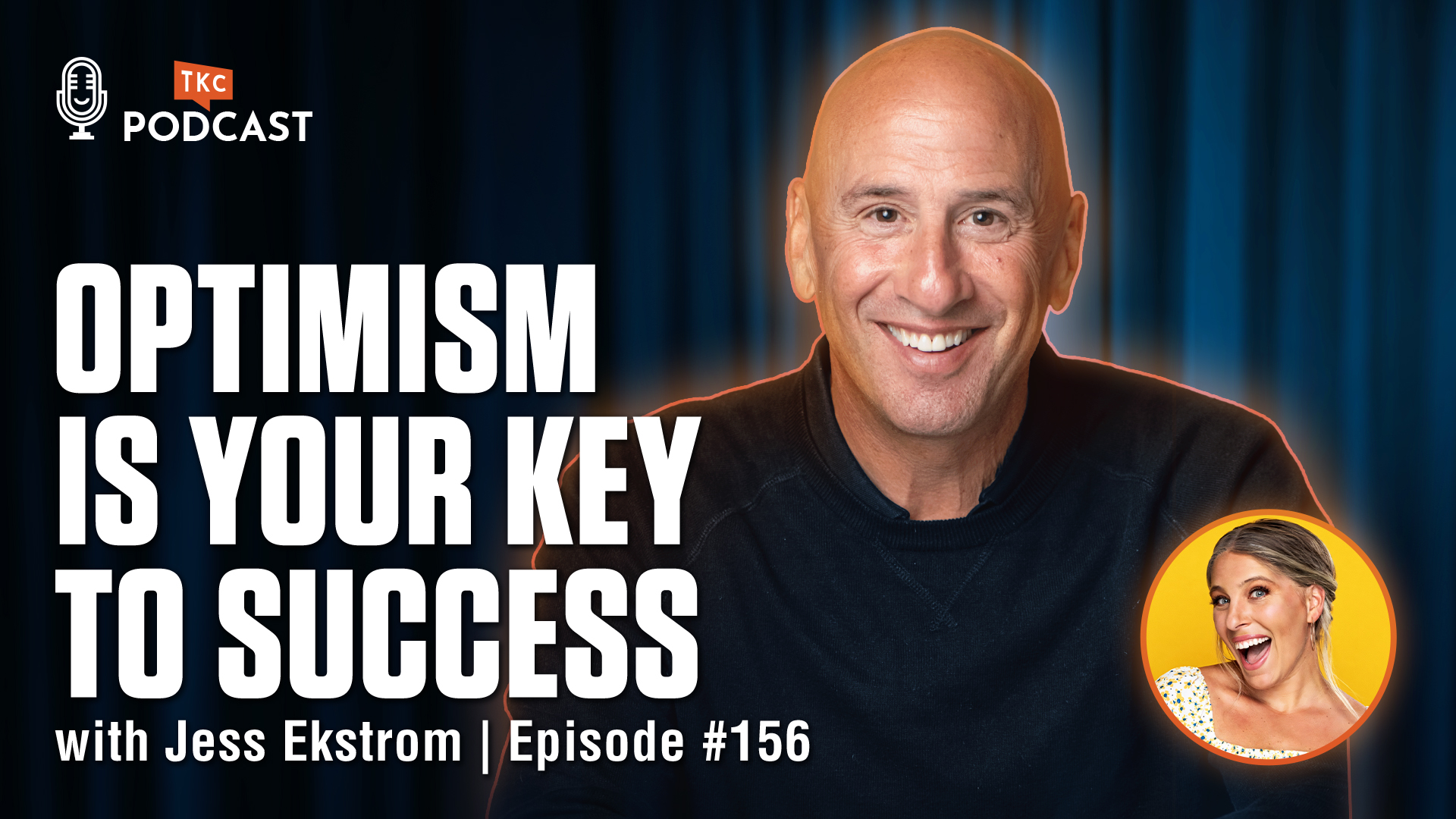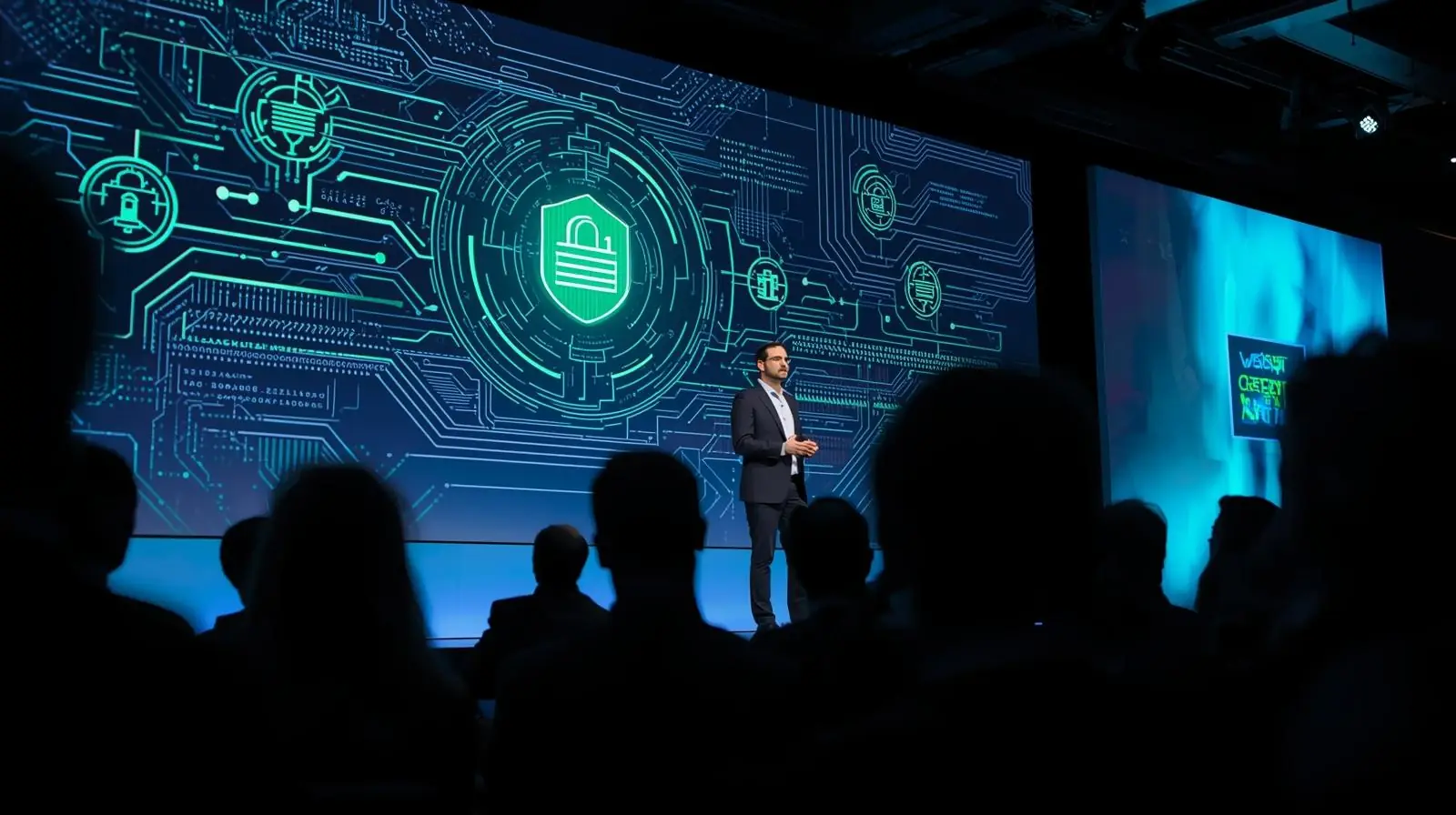
May 8, 2025Leading with Humanity in a Tech-Driven Future with Kate O’Neill
Explore how to prepare for the future while balancing innovation and transformation with with Kate O’Neill, chief tech humanist and author of What Matters Next.
? How will the future unfold in the tech-driven world we live in? AI is changing everything—but in an era of constant transformation, are we still leading with humanity?
On this episode of The Keynote Curators Podcast, I sit down with Kate O’Neill, global advisor and tech humanist, to tackle the complex questions around artificial intelligence, digital transformation, and what it means to be meaningfully human in a tech-fueled world.
From Google to the UN, Kate has helped the world’s most powerful brands align technology with purpose. Now she’s helping event professionals create more emotionally resonant, human-centered experiences powered by AI (yes, it’s possible).
? Want to future-proof your events without losing their soul? Tune in now
YouTube • Spotify • Apple Podcasts • Amazon Music
The Imperative of Tech Humanism
As future trends accelerate, organizations rush to adopt AI and automation. But Kate O’Neill warns that without a human-centered design approach, technology risks alienating the very people it aims to serve. Tech humanism bridges this gap by embedding human needs—empathy, context, and ethics—into every step of digital innovation. It’s not simply about deploying the latest innovation; it’s about ensuring technology amplifies human potential rather than replacing it.
Defining the Now‐Next Continuum
One of Kate’s signature frameworks is the “Now‐Next Continuum,” which helps leaders navigate between immediate actions and future possibilities. The Now focuses on current strengths—what your organization does well today—while the Next examines emerging trends in artificial intelligence, STEM education, and digital ethics that will define tomorrow. By mapping both, teams can make strategic choices that balance operational excellence with long‐term innovation.
For example, an event planner might use Now insights—existing attendee data and feedback—to refine current formats, while exploring Next technologies—like AI-driven personalization engines—to reimagine future experiences. This dual lens prevents technologists from focusing solely on novelty and helps humanists avoid nostalgia for outdated analog approaches.
Aligning AI with Purpose
AI’s potential is immense—from predictive analytics that optimize logistics to chatbots that handle attendee inquiries 24/7. Yet Kate emphasizes: “We must ask ‘what matters next?’ before ‘what’s next?’” Aligning AI initiatives with organizational purpose ensures that every algorithm serves a human goal—building community, fostering learning, or deepening connections.
In her work with Fortune 500 firms, Kate often begins by identifying core values—trust, inclusivity, creativity—and then designing AI solutions that embody these principles. For instance, a nonprofit might deploy AI to match mentees with mentors but build in fairness constraints to ensure equity across gender and racial lines. This DE&I lens transforms AI from a black box into a transparent, accountable partner.
The Human Intelligence vs. AI Partnership
A common misconception is that, in the future, AI will replace human judgment. Instead, Kate reframes it as a partnership: humans excel in empathy, context, and ethics, while AI shines at processing scale and pattern recognition. This complementary model—Human + AI—drives superior outcomes.
AI can help organizers through sentiment analysis to identify hot topics, and human speakers wove these insights into emotionally compelling narratives. The result: deeper connections and higher satisfaction scores.
Emotional Resonance in Tech‐Enabled Events
As event professionals integrate VR demos and AI matchmaking lounges, the risk is that experiences become gimmicky rather than meaningful. Kate counsels focusing on emotional resonance: design each tech touchpoint to evoke wonder, trust, or belonging. For example, an AI avatar greeter can detect language preferences and share a personalized welcome message, instantly making attendees feel seen.
Kate’s blueprint for human-centered events includes:
- Empathetic Onboarding: Use AI to gather attendee interests ahead of time, then tailor welcome kits or schedules.
- Contextual Content: Leverage real-time translation and transcription tools to bridge language and accessibility barriers.
- Reflective Spaces: Build in quiet zones—virtual or physical—where attendees can pause, reflect, and form deeper insights.
This approach ensures that technology amplifies emotional connections rather than overshadowing them.
Future Strategies for Tech‐Driven Organizations
Beyond events, tech humanism provides a strategic compass for entire organizations. Kate’s advisory work spans from boardrooms to R&D labs, guiding executive teams to:
- Define a Tech with Purpose manifesto that articulates how technology serves human well‐being.
- Implement Ethical AI frameworks for the future, including bias audits and transparent governance.
- Foster Digital Literacy programs for employees at all levels, ensuring no one is left behind by automation.
By embedding these principles into corporate strategy, companies become more resilient in the face of disruption and better equipped to build trust with customers and communities.
The Role of Data in Tech Humanism
Data fuels digital transformation, but without a human lens, it remains raw. Kate advocates for “data with dignity.” Collect only what’s necessary, anonymize sensitive attributes, and provide users with clear opt‐in/opt‐out mechanisms. This respectful approach not only aligns with data privacy regulations but also strengthens brand reputation and customer trust.
In practice, she helped a consumer brand redesign its loyalty program by limiting data collection to purchase history and engagement preferences—no intrusive behavioral tracking. The result was a 20% uplift in sign‐ups and a surge in net promoter scores, proving that purposeful data drives both ethics and business value.
Women Leaders and Tech Humanism
As a recognized women leader in technology and innovation, Kate champions diversity in tech teams. Research shows that gender‐diverse groups produce 45% more innovation revenue. Yet biases persist in hiring and algorithm design. Kate’s interventions include:
- Conducting Bias Busters workshops to reveal and mitigate unconscious biases in AI models.
- Establishing Sponsorship Circles where senior women in STEM mentor emerging female technologists.
- Partnering with universities to create Tech Humanist fellowships that merge technical training with ethics and empathy curricula.
By elevating diverse voices in tech, organizations build more robust, inclusive solutions that better serve all users.
Future Thought Leadership: What Matters Next
Kate’s latest book, What Matters Next (January 29, 2025), expands on her tech humanism philosophy. She outlines five pillars for future readiness:
- Cultivate Wonder: Embrace curiosity and lifelong learning to navigate rapid change.
- Design with Empathy: Prioritize user experiences that honor emotional and cultural contexts.
- Govern with Integrity: Implement governance models that balance innovation with accountability.
- Build Trusted Partner Ecosystems: Collaborate across sectors—public, private, academic—to tackle complex challenges.
- Embed Human Values: Ensure every technology decision reflects core human values—dignity, agency, and belonging.
These pillars serve as a playbook for leaders crafting strategies that harness AI responsibly while preserving human essence.
Branding & Marketing in a Tech‐Humanist World
As a branding & marketing strategist, Kate underscores the shift from product‐centric to experience‐centric branding. In a future tech‐humanist paradigm:
- Brands tell stories that weave technology’s benefits with authentic human narratives.
- Marketing campaigns feature real customer voices rather than contrived testimonials.
- Social media strategies balance algorithmic targeting with genuine community engagement.
Companies that adopt this approach report higher brand loyalty and customer lifetime value, illustrating that human‐centered marketing outperforms purely data‐driven tactics.
DE&I: Equity in Tech Humanism
DE&I is integral to tech humanism. Kate’s methodology ensures that AI systems do not perpetuate systemic biases. Key practices include:
- Conducting Inclusive Design Sprints that engage underrepresented user groups from ideation through testing.
- Applying Equity Audits to AI recommendations—e-commerce suggestions, hiring algorithms—to detect differential impacts.
- Setting public Equity Goals, such as representation targets in leadership and technical roles, with transparent progress reporting.
Embedding these practices builds trust and drives social impact alongside business outcomes.
The Future of Work: Human + AI Teams
Workplaces are evolving into human+AI ecosystems. Kate envisions hybrid teams where:
- AI handles repetitive tasks—data entry, scheduling—freeing humans for creative, strategic, and emotional intelligence‐driven work.
- Continuous upskilling programs empower employees to leverage AI tools effectively.
- Collaborative platforms integrate AI assistants that summarize meeting notes, surface relevant documents, and suggest next steps.
Organizations embracing this model achieve higher agility and employee satisfaction, driving competitive advantage in the future of work.
Personal Development for Tech Humanists
For individuals, Kate prescribes five daily practices to cultivate tech humanism:
- Morning Reflection: Spend 10 minutes journaling “What human value do I want to prioritize today?”
- Empathy Check: At midday, consciously consider how technology decisions affect diverse real‐world users.
- Learning Bite: Dedicate 15 minutes to exploring an emerging tech trend—AI ethics, XR, generative design.
- Connection Ritual: End the day with a genuine outreach—a thank-you note or a brief mentorship chat.
- Future Visioning: Once a week, imagine one bold, human‐centered innovation you’d love to see in your field.
These rituals build the mindset and habits necessary for preparing for the future thriving at the intersection of technology and humanity.
Consultative Approach in Event Planning
Turning insights into action, Kate models a consultative approach for event planners:
- Begin with a purpose‐first discovery: What human behavior change do you seek?
- Co-create with stakeholders—attendees, sponsors, tech vendors—to ensure alignment.
- Prototype small tech integrations—a mobile AI concierge, interactive AR experiences—test with pilot groups.
- Scale successful prototypes into full conference offerings, continually iterating based on feedback.
This consultative method champions collaboration and embeds human needs into tech choices.
Measuring Tech Humanism Impact
Quantifying the value of tech humanism involves a blended scorecard:
- Human Experience Metrics: Attendee sentiment scores, trust indexes, and perceived belonging.
- Business KPIs: Event NPS, repeat attendance rates, sponsorship retention.
- Innovation Indicators: Number of AI‐powered features adopted, pilot ROI, and time‐to‐market improvements.
- Ethical Benchmarks: Bias incident reports, data privacy compliance rates, and equity audit outcomes.
By tracking these dimensions, organizations demonstrate that tech humanism delivers tangible returns.
Looking Ahead: What Matters Next for Leaders
As we chart the course forward, Kate O’Neill’s closing advice to leaders is clear: embrace paradox. We must act boldly for the future with cutting‐edge AI while steadfastly protecting human dignity. We must automate ruthlessly yet personalize meticulously. We must plan for tomorrow while staying deeply present with the people who make innovation possible.
In Kate’s words: “Our leadership challenge is not ‘tech or human’—it’s ‘tech with human’.” By living this principle—integrating technology with empathy, ethics, and purpose—we prepare organizations and events that not only succeed but also uplift and inspire.
? Watch the full interview
✨ Hire future expert keynote speaker Kate O’Neill for your next audience
? More speakers who spark real change: thekeynotecurators.com
? Interested in talking about your next event? Schedule a time here
✉️ Or email us at: info@thekeynotecurators.com
Discover More Insights
Get in TouchContact US
Fill out the form so we can best understand your needs.
A representative from The Keynote Curators will reach out to you.








